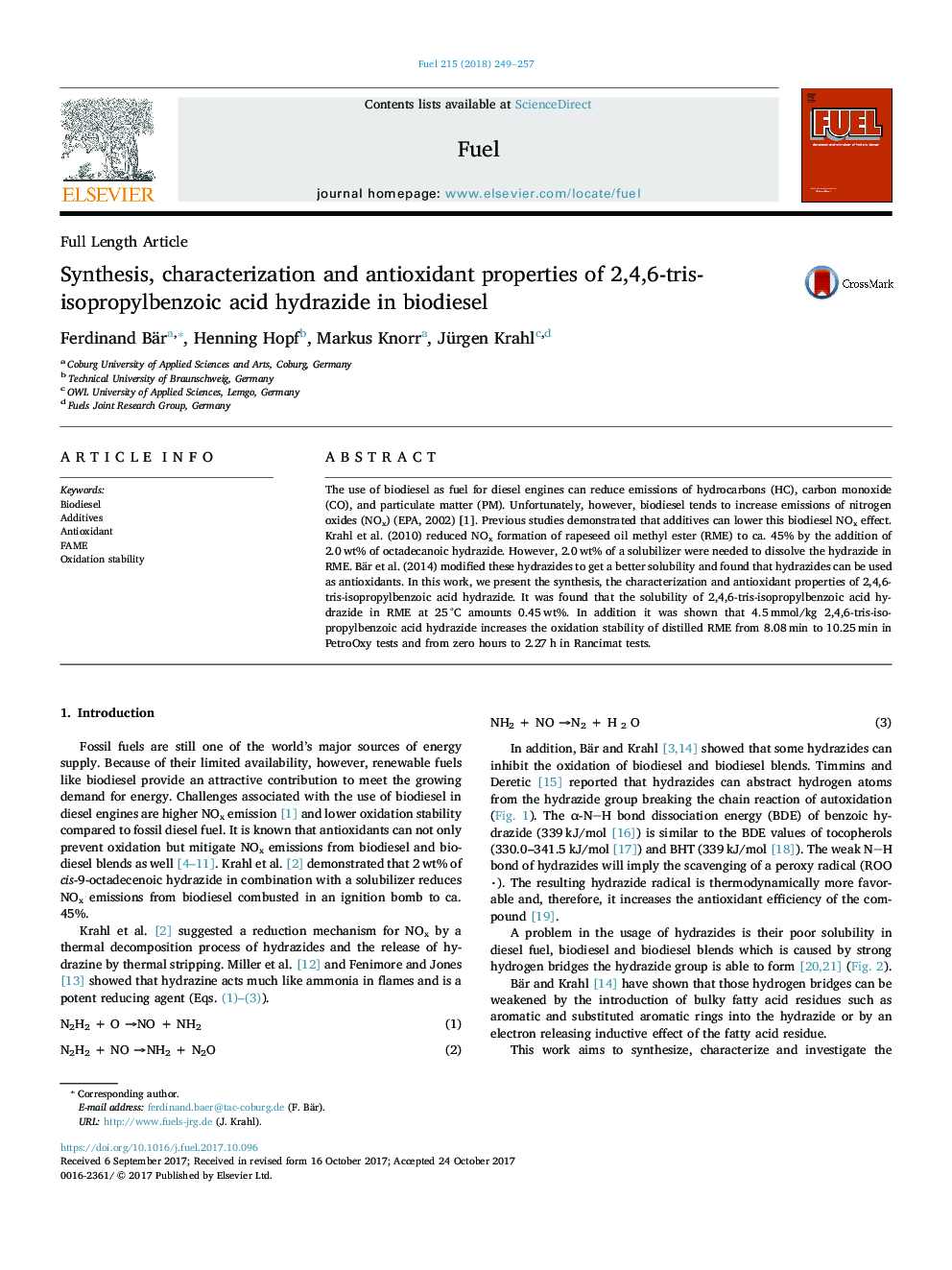| Article ID | Journal | Published Year | Pages | File Type |
|---|---|---|---|---|
| 6632300 | Fuel | 2018 | 9 Pages |
Abstract
The use of biodiesel as fuel for diesel engines can reduce emissions of hydrocarbons (HC), carbon monoxide (CO), and particulate matter (PM). Unfortunately, however, biodiesel tends to increase emissions of nitrogen oxides (NOx) (EPA, 2002) [1]. Previous studies demonstrated that additives can lower this biodiesel NOx effect. Krahl et al. (2010) reduced NOx formation of rapeseed oil methyl ester (RME) to ca. 45% by the addition of 2.0â¯wt% of octadecanoic hydrazide. However, 2.0â¯wt% of a solubilizer were needed to dissolve the hydrazide in RME. Bär et al. (2014) modified these hydrazides to get a better solubility and found that hydrazides can be used as antioxidants. In this work, we present the synthesis, the characterization and antioxidant properties of 2,4,6-tris-isopropylbenzoic acid hydrazide. It was found that the solubility of 2,4,6-tris-isopropylbenzoic acid hydrazide in RME at 25â¯Â°C amounts 0.45â¯wt%. In addition it was shown that 4.5â¯mmol/kg 2,4,6-tris-isopropylbenzoic acid hydrazide increases the oxidation stability of distilled RME from 8.08â¯min to 10.25â¯min in PetroOxy tests and from zero hours to 2.27â¯h in Rancimat tests.
Related Topics
Physical Sciences and Engineering
Chemical Engineering
Chemical Engineering (General)
Authors
Ferdinand Bär, Henning Hopf, Markus Knorr, Jürgen Krahl,
